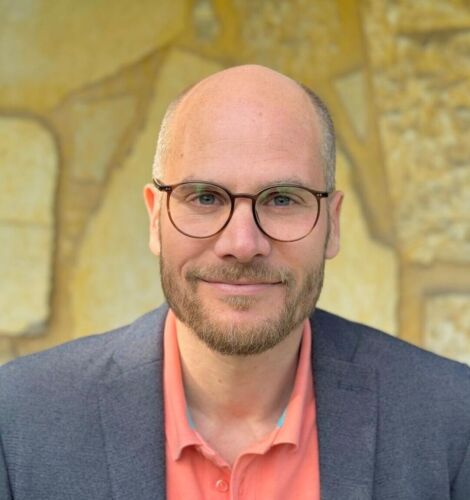Register to: Resonant Touch Immersion (24-26 April) | NARM® training or Stay updated-> Sign up for our newsletter!
Level 2 NARM Therapist Training
Healing Developmental Trauma (NeuroAffective Relational Model®, NARM®)

NARM® is a comprehensive psychodynamic and somatic approach to treating the consequences of developmental and relational trauma. NARM® draws on psychodynamic models such as object relations theory; attachment theory, as well as on interpersonal neurobiology and somatic mindfulness. It offers a process-oriented approach to working in the here and now.
NARM® works relationally in the present moment, offering a new approach that is resource-oriented, non-regressive, non-cathartic and non-pathologising. Drawing on interpersonal neurobiology, It works with early, unconscious patterns of disconnection that profoundly affect our identity, emotions, physiology, behaviour and relationships. Learning how to work with these different elements simultaneously, is a radical shift that has profound clinical implications for healing developmental trauma and supporting personal and relational growth.
The main focuses of the training are:
- different skills required for working with developmental trauma;
- addressing the complex interplay between nervous system dysregulation and identity distortions such as toxic shame and guilt, low self-esteem, chronic self-judgement and other psychobiological symptoms;
- working with affects and emotions, aiming to support psychobiological completion;
- working with early adaptive survival styles that have helped clients survive difficult circumstances but distort their current life experience, moment to moment;
- supporting clients in a process of disengagement from identity distortions.
More information about NARM®:
NARM article by Tobias Konermann
- Article: How the Neuro-Affective Relational Model (NARM®) expands the Psychotherapeutic Landscape (.pdf)
About Subjective Depth and the Effectiveness of Process-Orientation
Detailed training program
The NARM ™ Practitioner Training Program Curricullum: A Practitioner Training for Healing Developmental Trauma
Topic OverviewTopics and schedule subject to change by instructor.
Module 1 includes:
- NARM Organizing Principles
- NARM Theoretical Orientation
- Differentiating Interventions for working with Shock vs. Developmental Trauma
- Working Top-Down and Bottom-Up
- Tracking Connection & Disconnection
- Developmental Process: Attachment & Separation-Individuation
- Reframing Attachment and Attachment Loss
- The Distortion of the Life Force Model
- Distress and Healing Cycles
- 5 Adaptive Survival Styles
- Connection Survival Style
- Attunement Survival Style
- NARM 4 Pillars: Clinical Model
- NARM Pillar 1: Establishing a Therapeutic "Contract"
- NARM Pillar 2: Asking Exploratory Questions
- Deconstruction of Experience (in the function of Disidentification)
- "Drilling Down": A Process of Challenging Assumptions & Clarifying Experience
Module 2 includes:
- The NARM Relational Model
- Working Hypothesis
- Identifying Core Dilemma: Core Themes vs Survival Strategies (Behaviors, symptoms, etc.)
- Trust Survival Style
- Autonomy Survival Style
- Love-Sexuality Survival Style
- NARM Pillar 3: Supporting Agency (Agency as the Foundation for the Development of Adult Self)
- NARM Pillar 4: Reflecting Positive Shifts
- NARM Languaging
Module 3 includes:
- NARM Model for Working with Affect
- Primary vs Default Emotions
- Emotional Completion
- The Psychobiological Process of Shame ("Shame as a Verb not a Noun"; "Shame as a Process not a State")
- Shame, Guilt & Self-Hatred
- Working with Anger & Aggression
- Countertransference in NARM
- Unmanaged Empathy and Therapist Efforting
- Narcissism and Objectification of Self
- Narcissistic vs Sadistic Abuse
- NARM Personality Spectrum
Module 4 includes:
- Deepening Study into the Connection Survival Style Issues, Symptoms and Related Disorders
- The Interplay of the Survival Styles: Primary and Secondary Patterns
- Revisiting the Dynamics of Attachment, Separation-Individuation, Attachment Loss and the Core Dilemma
- Relationships, Couples, Intimacy and Sexuality
- Survival Styles & the Polyvagal Theory
- NARM & the Body
- Working with Identity
- Transgenerational Trauma
- Disidentification Process
- "Cutting the Cord": Freedom from Identity
- Post-Traumatic Growth
- Resiliency: Supporting the Capacity to Tolerate Increasing Complexity
- Integrating NARM Effectively Into Our Clinical Practice
Practicioner training Agreement
Here you can download the practicioner training agreement (that includes terms and conditions of the training and cancellation policies)
Download >>
Application form
Here you can download the application form
Download >>
Bank information for the transfer
BAN: SI56 0400 0027 8698 110
SWIFT BIC: KBMASI2X
Beneficiary: Karima Valentina Hočevar s.p.
NOTE: When making the bank transfer, please be sure to include YOUR NAME and NARM26 in the document. After completing the transfer, kindly send the confirmation to karima@mudita-institute.com via email.
Prerequisites for participation:
Participation requires a professional background in the field of psychosocial health (psychologists, psychiatrists, psychotherapists, counsellors, social workers, occupational therapists, etc.) and a training in a psychotherapeutic modality with at least 2 years practical/clinical experience of regular contact with clients/patients. Graduate trainees and interns working toward licensure are welcome to apply. This clinical training is not appropriate for those solely seeking a personal growth experience.
Language
English only
Teacher

Tobias Konermann
Tobias Konermann is a clinical psychologist and certified psychotherapist in private practice in Berlin, Germany. He is a certified teacher of the Neuro-Affective Relational Model (NARM) and has assisted Laurence Heller and other teachers with various trainings and masterclasses across Europe over the past 10 years. He has received extensive clinical training in cognitive behavioural therapy (CBT) and EMDR, as well as additional training in Gestalt and process-oriented approaches. He teaches at several psychotherapy and counselling training institutes (DGVT, HAP and IMU) in Germany, specialising in the treatment of developmental trauma.
Course schedule
The training was postponed. New dates will be announced.
-
1st module
July 15-19 2026
-
2nd module
December 2-6 2026
-
3rd module
June 9-13 2027
-
4th module
November 24-28 2027
Each module begins at 10 a.m. on the first day. Please come at 8.30 a.m. at the latest, because of the registration.
Venue
City Hotel Ljubljana
Dalmatinova 15, Ljubljana, Slovenia
Price
-
Registration fee*
500 € Payable one month before the first module.
-
1st to 4th instalment
2x 1.240 € + 1x 1.245 € Payable no later than 10 days before the first day of classes of the respective module.
-
entire training
4.225 € The price includes the registration fee and covers payment for four modules, which can be paid in 4 instalments.
* The registration fee is a non-refundable initial fee that covers the costs of recruiting participants and at the same time constitutes a commitment that the place reserved by the participant will be used by the participant. Please also note that there are additional costs in form of individual sessions and supervisions.